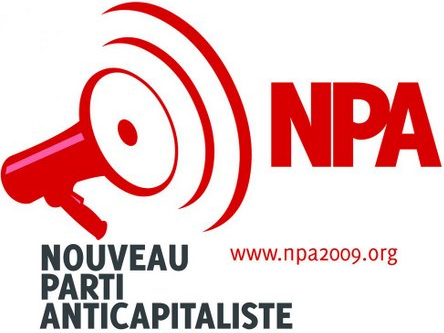The success of the Greens in the Euro elections poses some important questions for the left on how to deal with them. Here is a contribution to this discussion from Alastair Stevens.
The failure of the left in England and Wales to create a viable electoral force, and the relative success of the Greens has given the question of the left’s relations with the Green Party a new importance.
The disintegration of the Labour government, the undermining of the whole British party system and the consequent growth of the BNP has also given it a sudden urgency.
The Green Party in action
The Green Party in Britain is often described as the most left wing in Europe. The policies of the party have tended to put them on the left in British politics, but then the yawning void on the left since the advent of New Labour has meant that even the Lib Dems have tried to fish for votes there.
The Greens have also been able to comfortably occupy this space due to their relative distance from power. Other European Green parties have been thrust fairly quickly into power. The electoral system here has meant that they have been mostly excluded from office and the pressures to move right that come with that.
However when they have had electoral success their record has been patchy. The closer they have got to power the less principled they have seemed.
The Green Party has gone into coalition with the Tories in Leeds. In Lewisham they have a base, it is one of their strongest areas in the capital. Yet their councillors there voted for the occupied Lewisham Bridge School to be turned into an academy.
On the London Assembly the Greens played second fiddle to Ken Livingstone’s neo-liberal administration giving it left cover. In reality they did nothing much really against the agenda of turning the city the playground of the rich. Its representatives have been almost invisible, Darren Johnson only popping up in the media to for example join in the attacks on Al-Qaradawi.
As they have become closer to power they have rapidly lost many of their democratic structures. The party that prided itself for its open democratic working has transformed itself quite quickly into a centralised political machine that has tended to revolve around big personalities. This has been seen in the way it moved to having a single leader and in its method of election which over rode the old internal workings of the party.
Darren Johnson, is a case in point. He has accumulated places on bodies at a rate that even Lord Mandelson would be impressed at: “as an Assembly member, Johnson is or has been a member of numerous committees, including the Health and Public Services Committee, the Environment Committee (of which he is the Deputy Chair after chairing for the previous five years), the Transport Committee, the Planning and Spatial Development Committee, the Commission on London Governance, the London Fire and Emergency Planning Authority (LFEPA), the Elections Review Committee and the 7th July Review (London Resilience) Committee. He has also chaired an inquiry on nuclear waste trains for the GLA. He is or has been a member of Lewisham Council’s Council Urgency Committee, Elections Committee, Licensing (Supplementary) Committee, Licensing Committee, Overview and Scrutiny Committee and Marsha Phoenix Memorial Trust. He has represented Lewisham Council on the Local Government Association General Assembly.”
So much for a party that prided itself on its grass roots nature.
His fellow GLA member is Jenny Jones, who is also a councillor in Southwark, a role she has been virtually invisible in.
The Green Parties in Europe
The future for the Green Party may be seen in the behavior of its European partners. They have now been in government in all the major European countries and their record has been patchy tending towards downright awful.
In Germany, whose Green Party is still the most important in the movement, they have been in government in coalition at a national level with the SPD (the German equivalent of Labour) twice. They have been in regional governments since the mid eighties.
Hardly had they got into power in 1999 than they were supporting the war in Kosovo. The front man for this was the new Foreign Minister, and former anarchist street fighter, the Greens’ leader Joschka Fischer. This wasn’t the end of their war-mongering, though, as they also supported the deployment of German troops in Afghanistan.
They supported Agenda 2010 and most of the other neo-liberal attacks from the SPD government on the German working class. In April 2008 in local government they joined coalitions with the main right wing party, the CDU, in Hamburg and Cologne.
Elsewhere the record has not been much different.
In Italy much of the ire about the disastrous debacle the left suffered in the last elections has been directed at the performance in government of Rifondazione Comunista. The “Rainbow” alliance of which it was part along with the other smaller communist party the PCd’I was wiped out and won no seats at all.
Yet the Greens took an identical line in government to Rifondazione, voting for the continued occupation of Afghanistan and Iraq and the rest of the neo-liberal reform pushed by Prodi’s government.
The Greens in France entered a similar coalition with Jospin, and followed the same neo-liberal path.
Closer to home in Ireland the Greens entered a coalition government with Fianna Fail, one of the two main parties of Irish capitalism. In the process they managed to put a road through the historically important Hill of Tara.
The Green Party in Ireland is still in government there despite the absolutely vicious round of cuts now being made. This year’s Irish budget has meant an income cut of up to 8% for workers, a 2% cut in welfare payments, and reduced housing benefits for newly unemployed workers aged under 20.
The nature of the Green Party
The Green Party is a middle class party. This is also true of Green parties throughout Europe.
Its origins lie in the early environmental movement of the 1970s. In Britain this actually also means people like Teddy Goldsmith founder of the Ecologist magazine, and the holder like many Greens of some quite reactionary Malthusian ideas.
The growth of the Green Parties came in the eighties as many who had been on the left moved away socialist politics and any class based understanding of society. In fact the growth of these parties marked a decisive rejection of the concept of class. Even today in the British Green Party’s materials you will not find the word class. True to the radical (and often utopian) liberalism that is the philosophical basis of these parties they condemn “wealth inequality”, and various other elliptical constructions, but they don’t call it class.
The middle class nature of the party is obvious to any who come across the party. Recent a recent poll by Yougov shows this up quite explicitly.
By social grade Green voters were shown to have the highest percentage in the ABC1 category, 64%, closest to the Lib Dems’ 61% and Tories’ 60% (Labour voters 53% and BNP 39%.
Green voters had the second highest median income after the Tories, 32k and 33k respectively, ahead of the Lib Dems 29k. Labour and BNP voters had the lowest on 27k.
Green voters were the most likely to have a professional or higher technical job (doctor, account, teacher, lecturer, social worker) on 32% (Lib Dems 26%, Lab 20%, Con 20, BNP 11).
Green voters were the least likely to be a manual worker (skilled, semi-skilled or unskilled) at 12% (the next least likely being the Lib Dems and Tories, 14% each, then Lab 21%, UKIP 23%, BNP voters proving the most likely on 36%).
It would be possible to go but the picture emerging is one that we know well. The middle class focus of the party is reflected in the party’s policies.
These at root look very similar to most radical petit-bourgeois movements which have appeared over the last two hundred years from the sans culottes of the French revolution onwards. This class, caught between the working class on the one hand and the ruling capitalist class on the other tend to fear both. They fear the domination of the bosses and fear being dragged down into the working class. They are usually against both “big business” and “big labour”.
There is an obsession with making everything smaller and more local. The problem with the big banks were, that they were too big for instance.
Something the Greens were proud of during the London elections last year were was the endorsement by the Federation of Small businesses as the party with policies most friendly to small business. This is something that left wing fans of the Greens, tend not to mention, nor for they tend to point out the Green Party’s Greens Mean Business website.
The lamentable statement by Jenny Jones in the London Assembly is indicative of this attitude (see here for the text of her speech).
Faced with the across the board criticism of the RMT’s tube strike, rather than take the opportunity to forthrightly defend the country’s most militant union, and one that has improved immensely the pay and conditions of tube workers, she merely said that she said that she had “a slight sympathy for trade unions”.
She went on to add that she would have voted for the Tories motion condemning the strike if it had been worded slightly differently.
That is not to say that the Greens are the same as the Tories. They support improvements in workers rights. They adopt progressive positions on many economic issues. They are against poverty and exploitation.
The single greatest thing that would improve the lot of working people would be to repeal the anti-union laws so that workers and the unions can fight for themselves for these improvements. Yet this is a commitment you will not find them making.
A defence of workers’ and trade union rights is not central to their politics. They are rather mixed up with the rights of the self-employed and small business in a manner that appears to put both on the same level. In their voluminous programmatic document, the Manifesto for a Sustainable Society, trade unions appear after self- employed workers.
Though there are proposals to tinker with the law and improve the legal position of trade unions, with such changes as “a limited scope to ‘secondary’ industrial action”, and a range of proposals for ‘industrial democracy’ – albeit mixed in with ideas of ‘partnership’ reminiscent of the rhetoric of New Labour, there is no clear call for a wholesale abolition of the Tory anti-union laws. Though this is formally Green Party policy, it does not seem to find its place in their main public policy manifesto.
The appeal of the Greens is in the main limited to its target audience, the educated middle classes. That is their base, and that is the core of the party. Its appeal to the working class is limited. To the poor it has virtually none. This has been shown quite clearly in the recent elections. In the North West for instance, where much of the left did unite behind the Greens they were unable to undercut the BNP’s vote.
The Left and Greens
Dealing with the Greens is difficult. They often position themselves as a party of the left. They can also be as fanatically sectarian as many on the left.
They have a policy of always standing. They stood against George Galloway and Salma Yaqoob in 2004. They refused to deal with Respect when it was formed. They always stand against the Socialist Party’s councillors in Lewisham. Deals with them that work are almost unheard of.
They have carved out an electoral niche for themselves in some of the new bodies that have been created under Labour such s the GLA. It is one they are willing to defend against all comers. This was shown most obviously by the reaction to No2EU.
This important initiative by the RMT and others was greeted in a most hostile fashion. Even the Green Left “condemned” it (the words of a their leading members who also went on to describe it as a “Stalinist inspired political disaster”, showing the Greens can be adept as anyone in the dark art of political invective).
The reaction of another leading member of the Green left was little different calling for the RMT to stand down in case it loses Jean Lambert her seat.
The fact that the Greens have managed to capture the bottom seats in a number of elected bodies under proportional representation voting systems seems to be giving rise to an assumed right of veto by the Greens over any force standing to the left of them. The argument that standing will lose Green X the seat will be the argument at every election.
A section of the left, most notably in Germany and Scandinavia joined the Greens in the 1980s as part of a retreat from class politics. The result was the propelling into power of the Green Party in Germany and elsewhere and rapid accommodation to the system and its priorities.
There is a threat of that happening here. You can already hear those siren voices inside Respect and on the left. The attraction is understandable, both if you take into the consideration the retreat of class politics and the relative success of the Greens compared to the rest of the left.
When fascists are winning seats in the European Parliament and the GLA the temptation to try short cuts and stop them can be overwhelming.
But to really face this challenge what we need is a party that can address the working class with class politics. The nature of the British electoral system, even when using some type of PR (the d’Hondt method used still tends to discriminate against smaller parties) and the political culture of this country means the electoral space on the left of the Labour Party can appear limited.
Yet the Green Party is not that party, and nor can it be. Its hostility to initiatives towards such a party has also shown that cohabitation and cooperation with the Greens is difficult to say the least.
Lessons of history
There is like a hundred years ago a large amount of churn going on in politics throughout Europe, and for once Britain is not an exception (even if it has started later and is happening more slowly). The two party system, with the two parties being that of the bourgeoisie and the trade unions is weakening considerably.
One hundred years ago in both Britain and America the end of a long period of economic growth and stability resulted in numerous challenges to the status quo. There was a fluorescence of movements from female suffrage to anti-colonialism and demands for social and economic reform. In the US it was the era of “progressivism”.
In Britain one of the most important changes that occurred was the creation of the Labour Party by the trade unions and the solidifying of a form of class consciousness (albeit reformist) that would be the bedrock of the workers’ movement for the next 80 years.
The “social democratic” party created was one of the most conservative in Europe, a symptom not of the innate conservatism of British society (in these years Britain and Ireland were amongst the most turbulent of European countries), but of the failure of the left to break more completely with the ideas of well-meaning liberal reform. The fact that so much of the ideology of the new party was formulated by those with elitist attitudes (such as the Webbs with their utterly disdainful view of the abilities of the working class) is indicative of this.
In the US the situation was different. The trade unions failed to form their own party, and the momentarily successful Socialist Party drifted apart and disappeared into a politically abstentionist syndicalism on the left whilst the “right” of the party were outflanked and absorbed by the middle class progressives from whom they had failed to differentiate themselves in any meaningful way.
Rather than moving to class politics, the putative forces of change were swept into broad ‘progressive’ alliances, which fed back into the Tweedledee and Tweedledum of the American capitalist parties, the Republicans and Democrats.
Unity and independence
The project of the Green Party is a different one from ours. We believe that the working class needs a party that is based on class politics.
The Green Party is a middle class party of social reform that espouses a liberal cross class philosophy. It seeks to convince our rulers that it is in their own interest to change.
That is why we will not be joining the Greens, no matter how much more successful at the ballot box they may seem.
Nor should we should we be forming an unequal “alliance” with them, for in the future the left will probably have to fight against things they do, just as has happened in Europe.
But when it come to fighting for the things that working class people need, if the Greens fight we will unite to fight with them for a better world.








